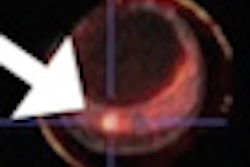Functional MRI (fMRI) can show certain patterns of brain activity that help predict which kids are at risk of becoming problem drinkers, according to a study in the September issue of the Journal of Studies on Alcohol and Drugs.
Researchers at the University of California, San Diego and the Veterans Affairs (VA) San Diego Healthcare System scanned 40 12- to 16-year-olds who had not yet started drinking, followed them for about three years, and then scanned them again. During that time, half the teens started to drink alcohol fairly heavily.
Once the teens started drinking, their brain activity as seen by fMRI looked similar to that of heavy drinkers in other studies. This pattern of heavy drinking typically included episodes of having four or more drinks on an occasion for females and five or more drinks for males.
Lead study author Lindsay Squeglia, PhD, said the findings add evidence that heavy drinking has consequences for teenagers' developing brains, and there may be brain activity patterns that predict which kids are at increased risk for heavy drinking.
The results may also provide clues to the biological origins of problem drinking by young people.




















